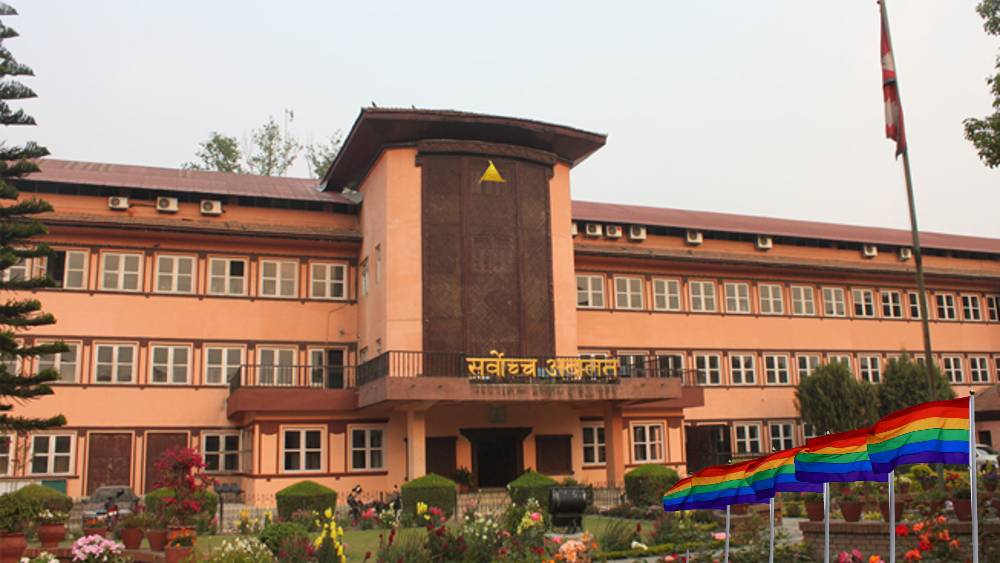
The Nepal Supreme Court’s unprecedented ruling on same-sex marriage follows an arduous struggle to achieve marriage equality in the South Asian nation. This historic order is expected to have an impact on an upcoming verdict regarding a similar plea at the Supreme Court of India. Despite India’s decriminalization of queer relations, the LGBTQ+ community in India is still denied the right to enter into a conjugal union.
Nepal’s integration of the notion of “civil union” and recognition of non-binary partnership rights in the discourse represents a pivotal source of hope for progress. Currently, India faces a formidable yet significant opportunity to realize its constitutional objective of establishing a Uniform Civil Code by harmonizing the right to same-sex marriage with existing personal laws. India, as a prominent South Asian nation, bears a profound responsibility to uphold the principles of equality and non-discrimination amid the dynamic and transforming landscape of LGBTIQ+ rights.
Nepal’s Move Toward Marriage Equality
The year 2007 can be touted as a harbinger of socio-political reforms in Nepal, marked by alteration from its monarchical political regime to parliamentary democracy. In the same year, the judgment of Sunil Babu Pant v. Nepal Government, recognizing same-sex relationships, was a milestone in the nation’s history. Further, the LGBTQ+ community was granted legal status in Nepal’s Constitution, prohibiting gender discrimination and promoting equality under Article 18 of the Nepalese Constitution.
However, without the legalization of same-sex marriage, granting constitutional recognition to sexual minorities was an empty right. This dichotomy surfaced when court rulings allowed gay couples to cohabitate while successive governments failed to engender a legislative framework for same-sex marriages.
The recent Supreme Court ruling of Adheep Pokharel v. Ministry of Home Affairs ended the Nepal government’s lackadaisical attitude toward legalization of same-sex marriages. The court registered the marriage of same-sex couple Adheep Pokharel and his spouse Tobias Volz, Nepali and German citizens, respectively, and granting a non-tourist visa to Volz.
Although interim in nature, this judgment has allowed same-sex couples and other non-binary partnerships to register marriage in the country, thus ensuring dignity and respect under Article 16. Moreover, directions have been issued to amend provisions related to marriage and its registration within the current National Civil (Code) Act, 2017, in which marriage is deemed as “a man and a woman accepting each other as the husband and wife” under Clause 67. To do complete justice to freedom of marriage under Clause 69(1), in which “every person has the freedom to conclude a marriage, establish a family and spend a conjugal life,” sweeping alterations in Nepal’s family law is a sine-qua-non.
The Indian Narrative
India’s departure from the vestige of Victorian morality is evident in its progressive legal framework, which grants equal protection to transgender individuals and decriminalizes homosexuality. Guided by the landmark case of Navtej Singh Johar, the nation is in constant pursuit of equality for LGBTQ+ rights. Recently, the Supreme Court expanded the definition of family to include unmarried, non-binary partnerships, emphasizing equal protection and inclusiveness under the law.
India as a pluralistic society follows distinct personal laws governing marriage. However, societal pressures rooted in the retrogressive caste endogamy hinder progress. Overcoming these challenges is vital to align legal provisions with the equality and non-discrimination principles in Article 15 of the Indian Constitution. Leading arguments in the case of Supriyo @ Supriya Chakraborty & Anr. v Union of India before Supreme Court of India derive from the understanding that retrograde societal values cannot justify discrimination and violation of the right to equality. In this case, the Supreme Court will determine whether marriage equality for LGBTIQ+ individuals, including same-sex marriage, can be read into the Special Marriage Act, 1954.
Challenging the Status Quo in Nepal and India
The Nepal verdict relied on Article 18(1) of the Nepalese Constitution, which aligns with India’s Article 14, affirming the right to equality. Further, the directions by Nepal’s bench for temporary registration of marriages for same-sex and non-traditional couples provide a catalyst for legalizing cohabitation and granting comprehensive rights. Thus, India should develop the prospective notion of “civil union” under the Special Marriage Act 1954, to strive to confer a bundle of rights and enhance the legal status of same-sex and non-binary partnerships.
Adopting an umbrella concept of a “third gender” is crucial to recognizing non-binary gender identities, as upheld in Nepal’s interim order. Nepal’s court finding may have a significant impact on India’s upcoming verdict.
In India, a secular Uniform Civil Code (“UCC”) that envisages uniformity in personal laws has been a constitutional pipe dream. A notable proposal of an opt-in gender-equal family law regime, if adopted as alternative co-existing law, integrates the discourse on the UCC with the LGBTQ+ rights movement, particularly regarding marriage equality. In this light, the state may strive to legislate an opt-in alternative to promote the values of inclusivity and social cohesion.
Countries like the United States, Netherlands, the United Kingdom, France, and now Nepal have made significant strides toward marriage equality. As the largest pluralist democracy, India must uphold the same principles of equality and non-discrimination.
Edited by: Hayley Behal | U. Pittsburgh School of Law, US
Copyright © All right reserved to pahichan.com Site By: Sobij.